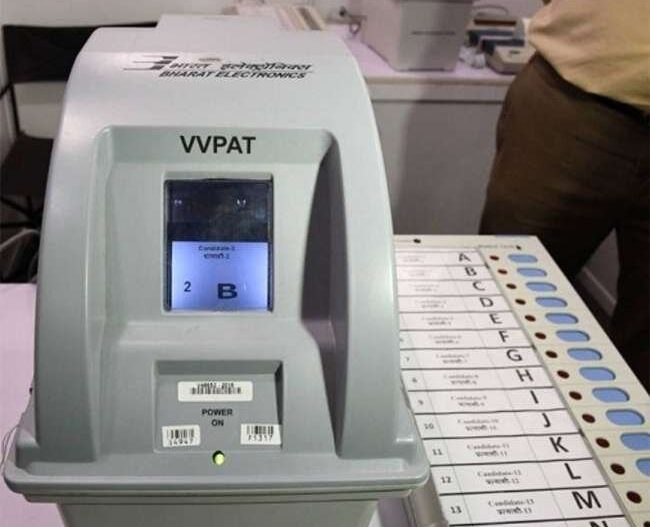The Supreme Court is likely to pronounce its verdict on a batch of petitions seeking directions to tally Voter-Verifiable Paper Audit Trail (VVPAT) slips with votes cast through Electronic Voting Machines (EVMs) during the elections.
A bench of Justices Sanjiv Khanna and Dipankar Datta asked a senior official of the Election Commission of India (ECI) to be present in the court to answer a few queries, which include if microcontroller is installed in the controlling unit or the VVPAT, if the microcontroller is one time programmable and how many symbol loading units are available with the ECI.
The court also told ECI the limitation period for filing election petition is 30 days you said and so storage and records is maintained for 45 days. But limitation day is 45 days, you have to correct it.
“We just wanted a few clarifications, factually we should be on the page,” the top court said.
In the last hearing as well, the bench had extensively interacted a poll panel official to understand the functioning of EVMs.
Senior advocate Maninder Singh, appearing for the poll panel, had told the court that EVMs were standalone machines and couldn’t be tampered with, but the possibility of human error couldn’t be ruled out.
Underscoring that the electoral process has to have sanctity, Justice Datta told Mr Singh, “You have to allay the apprehensions, both in the court and outside the court. Let nobody have the apprehension that something which is expected is not being done.”
Following the Election Commission’s submissions, the Supreme Court told the petitioners that over suspicion of everything is a problem.
“Everything cannot be suspected. You cannot be critical of everything. If they (the ECI) have done something good, you have to appreciate it. You don’t have to be critical of everything,” the bench told the counsel of one of the petitioners.
In an earlier hearing on April 16, The bench expressed reservations about the manual counting process, saying the electoral process in India is a “humongous task” and attempts should not be made to “bring down the system”.
The VVPAT enables a voter to see if the vote was cast properly and went to the candidate he/she supports. The VVPAT generates a paper slip that is kept in a sealed cover and can be opened if there is a dispute.
Currently, VVPAT slips of five randomly selected EVMs in every Assembly segment are verified.
Amid the Opposition’s questions and apprehensions regarding the EVM system of voting, the petitions call for cross-verification of every vote.
The petitions have been filed by the Association for Democratic Reforms (ADR) and activist Arun Kumar Agarwal. Agarwal has sought the counting of all VVPAT slips. The ADR’s petition seeks the court’s direction to the Election Commission and the Centre to ensure that voters are able to verify through VVPATs that their vote has been “counted as recorded”.
Also Read: GPCB Ordered To Pay Rs 20 lakh Compensation To Farmer













